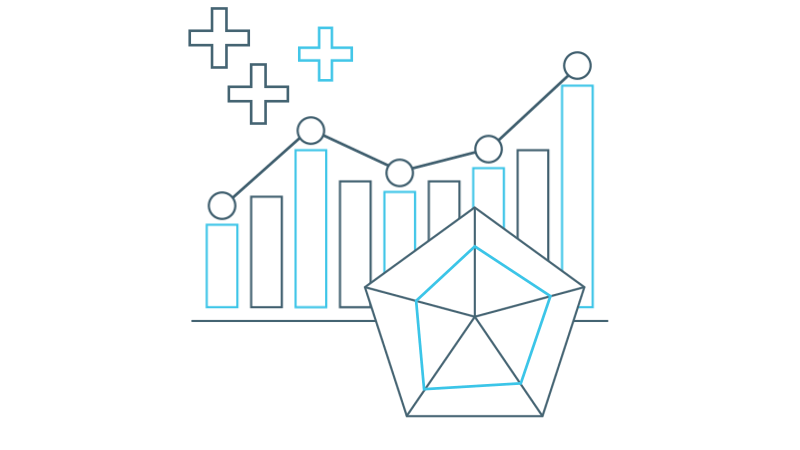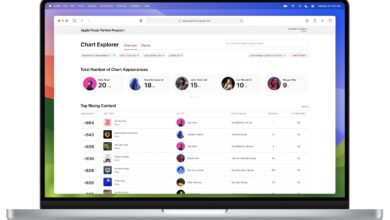5 Best Data Analytics Certifications (June 2024)

Having a strong foundation in data analytics is crucial for professionals seeking to advance their careers and make a meaningful impact in their organizations. With the growing demand for data analytics skills, numerous certifications have emerged to validate individuals’ expertise and set them apart in the job market. In this article, we will explore some of the best data analytics certifications available, each offering a unique blend of comprehensive training, hands-on experience, and industry recognition.
DataCamp offers a wide range of Data Analysis courses designed specifically for beginners, providing a solid foundation in the essential skills and tools needed to start a career in data analysis. These courses assume no prior experience and guide learners through the basics of data analysis using popular programming languages like Python and R, as well as essential tools such as Excel, SQL, and Tableau. With a focus on hands-on learning, DataCamp’s beginner courses ensure that learners gain practical experience from day one in their pursuit of a certificate.
The beginner-friendly courses cover a broad spectrum of topics, including data manipulation, data cleaning, exploratory data analysis, data visualization, and basic statistics. Learners engage with interactive exercises and real-world datasets, allowing them to apply their newly acquired skills in a practical context. The courses are taught by experienced instructors who break down complex concepts into easily digestible lessons, ensuring that even those with no prior experience can follow along and make steady progress.
DataCamp’s beginner Data Analysis courses are self-paced and flexible, allowing learners to fit learning into their schedules. Many of these courses are part of larger skill tracks and career tracks, providing learners with a clear roadmap for progressing from beginner to intermediate and advanced levels. By completing these beginner courses, learners build a strong foundation in data analysis and gain the confidence to tackle more complex projects and advance their careers in this exciting field.
Key components of DataCamp’s Data Analysis courses:
- No prior experience required, guiding learners through the basics of data analysis using Python, R, Excel, SQL, and Tableau
- Hands-on learning with interactive exercises and real-world datasets, allowing learners to gain practical experience
- Broad coverage of essential topics, including data manipulation, cleaning, exploratory analysis, visualization, and basic statistics
- Taught by experienced instructors who break down complex concepts into easily digestible lessons
- Self-paced and flexible learning, with many courses part of larger skill tracks and career tracks for continued growth

IBM’s Introduction to Data Analytics course on Coursera provides a comprehensive introduction to the field of data analysis. The course is designed for beginners and does not require any prior experience in data analysis or programming. It aims to equip learners with a solid foundation in data analytics concepts, tools, and processes, preparing them for further learning and potential careers in the field.
The course is part of IBM’s Data Analyst Professional Certificate program, which consists of nine courses that cover various aspects of data analysis, from the basics to more advanced topics. Introduction to Data Analytics serves as the first course in this series, setting the stage for the subsequent courses. It is also included in other IBM programs, such as the Data Analysis and Visualization Foundations Specialization and the IBM Data Analytics with Excel and R Professional Certificate.
Throughout the course, learners engage with a variety of learning materials, including video lectures, readings, quizzes, and hands-on labs. The course culminates in a peer-reviewed final project, where learners apply their newly acquired knowledge to a real-world scenario. Upon completion, learners gain a clear understanding of the data analytics process, the roles and responsibilities of data professionals, and the various tools and technologies used in the field.
Key components of IBM’s Introduction to Data Analytics course:
- Comprehensive introduction to data analytics concepts, tools, and processes
- Part of IBM’s Data Analyst Professional Certificate program and other IBM offerings
- Designed for beginners, with no prior experience required
- Engaging learning materials, including video lectures, readings, quizzes, and hands-on labs
- Peer-reviewed final project that applies course knowledge to a real-world scenario

Google’s Data Analytics Professional Certificate on Coursera is a comprehensive program designed to prepare individuals for a career in the high-growth field of data analytics. The certificate is suitable for beginners, with no prior experience or degree required. It aims to equip learners with in-demand skills and provide them with opportunities to connect with top employers in the industry.
The program consists of eight courses that cover various aspects of data analytics, including data collection, cleaning, analysis, visualization, and presentation. Learners gain hands-on experience with popular tools and platforms such as spreadsheets, SQL, Tableau, and R programming. The content is highly interactive and exclusively developed by Google employees with extensive experience in data analytics.
Throughout the program, learners engage with a mix of videos, assessments, and hands-on labs that simulate real-world data analytics scenarios. The certificate also includes a case study that learners can share with potential employers to showcase their newly acquired skills. Upon completion, graduates can directly apply for jobs with Google and over 150 U.S. employers, including Deloitte, Target, and Verizon.
Key components of Google’s Data Analytics Professional Certificate:
- Comprehensive program designed for beginners, with no prior experience or degree required
- Eight courses covering data collection, cleaning, analysis, visualization, and presentation
- Hands-on experience with popular tools and platforms, such as spreadsheets, SQL, Tableau, and R programming
- Highly interactive content exclusively developed by experienced Google employees
- Opportunity to directly apply for jobs with Google and over 150 U.S. employers upon completion

The Digital Marketing Analytics: Data Analysis, Forecasting and Storytelling online short course from NUS is designed to help professionals make sense of the vast amounts of data available in today’s digital landscape. The course recognizes that while data is abundant, it must be effectively analyzed, visualized, and communicated to drive meaningful insights and decision-making. Over six weeks, participants develop a strong foundation in data analysis, visualization, and communication skills.
The course is particularly relevant for marketing and data professionals who want to expand their data analysis skills and effectively communicate insights to stakeholders. It is also suitable for senior business or marketing executives who rely on marketing data to inform strategies and decisions. Participants learn to use design and storytelling principles to create compelling data dashboards using Tableau, ultimately enabling them to present and interpret marketing data that can drive organizational success.
Throughout the course, participants engage with experts and gain hands-on experience with tools like Tableau and Orange. The curriculum covers a range of topics, including marketing analytics fundamentals, data storytelling, forecasting, predictive analytics for customer retention, segmentation and clustering techniques, and customer experience analysis. By the end of the course, participants are equipped with the knowledge and skills to make data-driven predictions, effectively target customers, and create impactful marketing strategies.
Key components of the Digital Marketing Analytics course from NUS on GetSmarter:
- Six-week online short course focused on data analysis, visualization, and communication in marketing
- Designed for marketing and data professionals, as well as senior business or marketing executives
- Teaches participants to use design and storytelling principles to create compelling data dashboards using Tableau
- Covers topics such as marketing analytics fundamentals, forecasting, predictive analytics, segmentation, and customer experience analysis
- Equips participants with the skills to make data-driven predictions, target customers effectively, and create impactful marketing strategies

The Advanced Business Analytics Specialization, offered by the University of Colorado Boulder on Coursera, is designed to equip learners with real-world data analytics skills that can be applied to grow businesses, increase profits, and create maximum value for shareholders. The specialization brings together academic professionals and experienced practitioners to share their expertise and insights. Learners gain practical skills in extracting and manipulating data using SQL code, executing statistical methods for descriptive, predictive, and prescriptive analysis, and effectively interpreting and presenting analytic results.
Throughout the specialization, learners apply the skills they acquire to real business problems and datasets. They have opportunities to build conceptual models of businesses and simple database models, practice data extraction using SQL, apply predictive and prescriptive analytics to business problems, develop models for decision making, interpret software output, and present results and findings. The specialization utilizes basic Excel and the Analytic Solver Platform (ASP), an Excel plug-in, with learners participating in assignments able to access the software for free.
The specialization consists of four courses and a capstone project. The courses cover topics such as the analytical process, data creation, storage, and access, relational databases and SQL, predictive modeling techniques, exploratory data analysis, data visualization, optimization techniques for decision making, and communicating analytics results effectively. The capstone project allows learners to apply their skills to interpret a real-world dataset and make appropriate business strategy recommendations.
Key components of the Advanced Business Analytics Specialization:
- Practical skills in data extraction, manipulation, and analysis using SQL code and statistical methods
- Application of predictive and prescriptive analytics techniques to real business problems and datasets
- Utilization of Excel and the Analytic Solver Platform (ASP) for hands-on learning
- Four courses covering the analytical process, predictive modeling, business analytics for decision making, and communicating results
- Capstone project to apply skills in interpreting real-world data and making business strategy recommendations
The Value of Data Analytics Certifications
Pursuing a data analytics certification is a valuable investment in your professional development. Whether you are a beginner looking to break into the field or an experienced professional seeking to enhance your skills, these certifications offer a wide range of options to suit your needs. By earning one of these certifications, you demonstrate your commitment to staying at the forefront of the data analytics field, expand your career opportunities, and position yourself as a data-driven leader in your organization.





